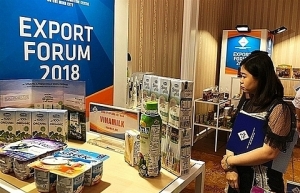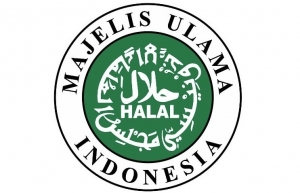Halal markets offer export opportunities for Vietnamese produce
Vietnam has significant potential to produce and export Halal products, given its abundant raw material sources and location in Asia, where about 62 per cent of the world's Muslim population lives, Ly Thi Kim Chi, chairwoman of the Ho Chi Minh City Food and Foodstuff Association, shared information at the seminar "Halal Market: Concept, Potential, and Challenges" held on July 13 in Ho Chi Minh City.
“Vietnam is one of the world's largest exporters of agricultural products, with many key items such as rice, rubber, tea, cashew nuts, coffee, and pepper. The country's territory is close to Halal markets in Asia. Within Southeast Asia, Indonesia – the world's most populous Muslim country, is a potential market for Vietnamese businesses,” said Chi.
According to a report by the Food and Agriculture Organization of the United Nations, spending on Halal food by the global Muslim community is increasing, projected to reach $1.9 trillion in 2024 and $15 trillion by 2050.
Notably, the Southeast Asia-South Pacific region is a potential export market for Halal products, with about 860 million people following Islam and consuming Halal food. This region is the largest consumer of Halal food globally, with about $470 billion, of which Southeast Asia accounts for $230 billion and South Asia-South Pacific $238 billion, Nguyen Tuan, deputy director of the Ho Chi Minh City Investment and Trade Promotion Center, shared at the seminar.
Furthermore, Vietnam is actively implementing the project to develop relations with countries in this region during 2016-2025, including high-level declarations with some key partners on cooperation, promoting export-import, and certifying Halal products.
 |
| More export opportunities for Vietnamese Agricultural products |
Vietnam is also an important link in many leading regional economic connections, with 16 free trade agreements (FTAs), including some new-generation FTAs.
However, to export food and agricultural products to the Muslim market, businesses need to comply with Halal standards as regulated by GSO.
Also discussing about this issue, on July 12, the Trade Promotion Agency under the Ministry of Industry and Trade also organised a seminar on promoting trade to the African-Middle Eastern market with the theme "Potential to Promote Halal Agricultural Products in the Middle Eastern Market." The seminar attracted a large number of import-export businesses and agricultural product sectors to participate both in person and online.
“To ensure compliance with these standards, businesses need to obtain Halal certification. This certification will serve as proof for customers that the company's products have been inspected and fully meet Halal standards,” said Le Chau Hai Vu, food quality Halal consultant and director of Consultech JSC.
Although there are promising growth signals in agricultural exports to the Middle East, Vietnamese agricultural products have not yet created a strong brand and face fierce competition with agricultural products from other countries such as India, Sri Lanka, Thailand, China, and Brazil.
Nguyen Minh Phuong, head of the West Asia, Africa Division - Asia-Africa Market Department under the Ministry of Industry and Trade, agreed that the Middle East had large demand for Halal products, especially agricultural products, with huge potential for Vietnamese goods and products.
“To effectively enter the Middle Eastern market, Vietnamese businesses should also prioritise research to gain an in-depth understanding of market trends. This includes familiarity with the region's religion, language, and business culture, as well as insight into consumer preferences and sensitivities regarding religion and culture,” said Phuong
Tran Trong Kim, first secretary, in charge of the Vietnam Trade Office in Saudi Arabia, recommended businesses should study market preferences and local regulations on quality management and food safety.
Besides that, enterprises can proactively send product samples for promotion, display at the Trade Office and Embassy, and participate in trade promotion delegations to the area, bringing product samples for promotion, directly connecting, and using company products as diplomatic gifts.
Additionally, the current trend in Saudi Arabia is towards a green, healthy life and sustainable environmental development. Organic, and environmentally friendly products are beginning to be highly valued and will be in demand in the near future. Therefore, businesses should consider producing in this direction to increase export value.
Specifically, it is necessary to build a unique brand for products alongside selling, packaging, and labelling according to the importer's requirements.
 | Halal food exports offer Vietnam big opportunity Halal food is a promising export product for Vietnamese companies to pursue though they may face challenges. |
 | Vietnam determined to tap into thriving Halal market Vietnam is sharpening its strategic approach to the Halal market, actively pursuing stronger partnerships with Indonesia and ASEAN nations to capitalise on the expanding industry. |
What the stars mean:
★ Poor ★ ★ Promising ★★★ Good ★★★★ Very good ★★★★★ Exceptional
Related Contents
Latest News
More News
- Ho Chi Minh City launches plan for innovation and digital transformation (February 25, 2026 | 09:00)
- Vietnam sets ambitious dairy growth targets (February 24, 2026 | 18:00)
- Masan Consumer names new deputy CEO to drive foods and beverages growth (February 23, 2026 | 20:52)
- Myriad risks ahead, but ones Vietnam can confront (February 20, 2026 | 15:02)
- Vietnam making the leap into AI and semiconductors (February 20, 2026 | 09:37)
- Funding must be activated for semiconductor success (February 20, 2026 | 09:20)
- Resilience as new benchmark for smarter infrastructure (February 19, 2026 | 20:35)
- A golden time to shine within ASEAN (February 19, 2026 | 20:22)
- Vietnam’s pivotal year for advancing sustainability (February 19, 2026 | 08:44)
- Strengthening the core role of industry and trade (February 19, 2026 | 08:35)

 Tag:
Tag:




















 Mobile Version
Mobile Version